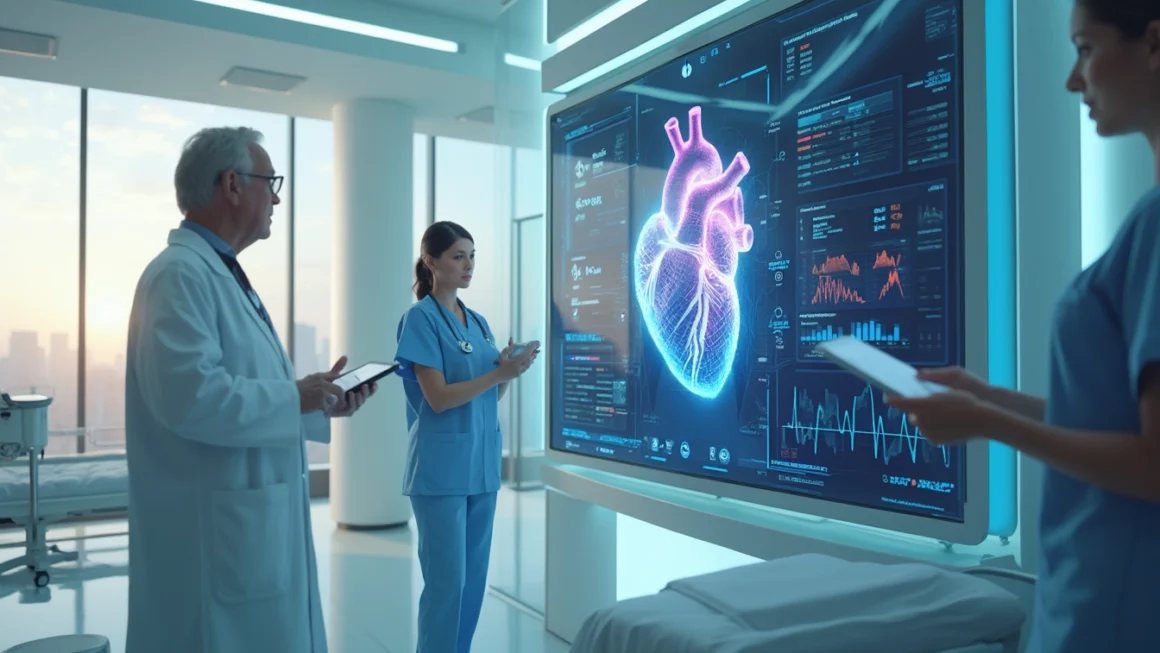The Rise of AI in Healthcare: A Game-Changing Development
Table of Contents
Artificial Intelligence (AI) is rapidly transforming various industries, and healthcare is no exception. A recent breakthrough in AI technology has shown remarkable potential in diagnosing heart problems, marking a significant milestone in the field of medical diagnostics.
AI’s Impressive Performance in Detecting Heart Issues
In a groundbreaking study, an AI system demonstrated its ability to outperform human doctors in identifying potential heart problems. The AI algorithm analyzed electrocardiogram (ECG) data from over 700,000 patients and successfully detected abnormalities that human experts had missed.
This development is particularly noteworthy because:
- It showcases AI’s potential to enhance diagnostic accuracy
- It could lead to earlier detection and treatment of heart conditions
- It may help alleviate the strain on healthcare systems by streamlining the diagnostic process
The Impact on Healthcare Professionals
While the AI’s performance is impressive, it’s important to note that this technology is not meant to replace human doctors. Instead, it serves as a powerful tool to assist medical professionals in making more accurate diagnoses. By working alongside AI systems, doctors can:
- Improve their diagnostic capabilities
- Focus more on patient care and treatment planning
- Reduce the likelihood of missed diagnoses
Challenges and Considerations
Despite the promising results, there are several challenges to consider as we integrate AI into healthcare:
- Ethical concerns regarding patient data privacy and security
- The need for robust regulatory frameworks to govern AI use in medical settings
- Ensuring that AI systems are trained on diverse datasets to avoid bias
- Maintaining the human touch in patient care
The Future of AI in Healthcare
As AI continues to evolve, its applications in healthcare are likely to expand beyond diagnostics. We may see AI-powered systems assisting in:
- Treatment planning and personalized medicine
- Drug discovery and development
- Predicting patient outcomes and readmission risks
- Optimizing hospital operations and resource allocation
Embracing AI-Driven Healthcare Solutions
To fully harness the potential of AI in healthcare, it’s crucial for medical institutions, technology companies, and regulatory bodies to collaborate. This cooperation can ensure the responsible development and implementation of AI systems that truly benefit patients and healthcare providers alike.
As we move towards a more automated future, it’s worth noting that AI can be leveraged in various industries beyond healthcare. For instance, platforms like Make.com offer automation solutions that can streamline processes and improve efficiency across different sectors.
Conclusion: A Promising Future for AI in Medicine
The recent breakthrough in AI’s ability to diagnose heart problems more accurately than human doctors marks a significant step forward in medical technology. While challenges remain, the potential benefits of AI in healthcare are immense. As we continue to refine and expand these technologies, we can look forward to a future where AI and human expertise work hand in hand to provide better, more efficient healthcare for all.
As AI continues to evolve and integrate into various aspects of our lives, it’s clear that we’re on the cusp of a technological revolution in healthcare and beyond. The key lies in embracing these advancements responsibly and ensuring that they serve to enhance, rather than replace, human capabilities in critical fields like medicine.




